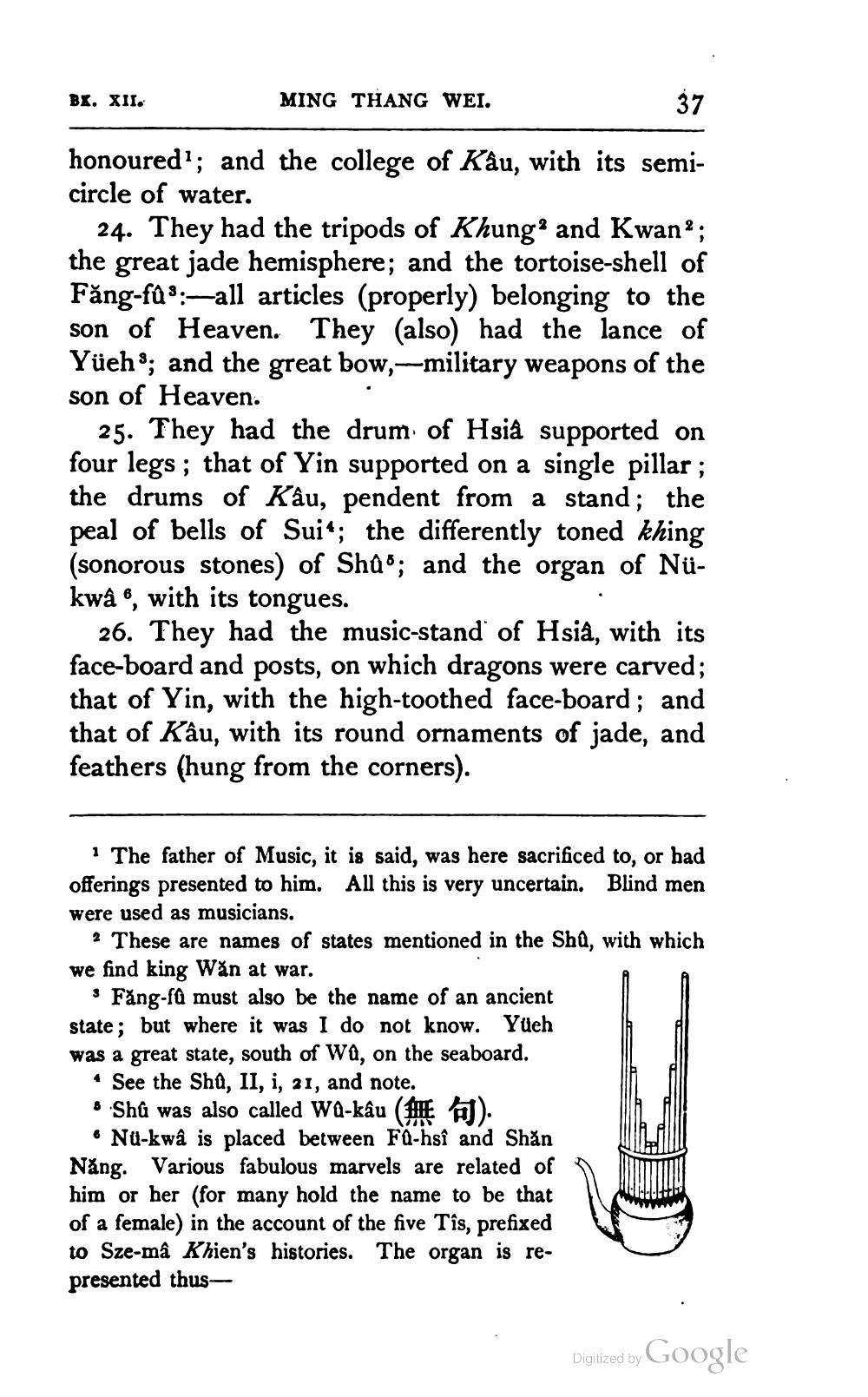________________
BX. XII.
MING THANG WEI.
honoured"; and the college of Kâu, with its semicircle of water.
24. They had the tripods of Khung' and Kwano; the great jade hemisphere; and the tortoise-shell of Făng-fu :-all articles (properly) belonging to the son of Heaven. They also had the lance of Yüeho; and the great bow,-military weapons of the son of Heaven.
25. They had the drum of Hsià supported on four legs; that of Yin supported on a single pillar; the drums of Kâu, pendent from a stand; the peal of bells of Sui"; the differently toned khing (sonorous stones) of Shao; and the organ of Nükwas, with its tongues.
26. They had the music-stand of Hsia, with its face-board and posts, on which dragons were carved; that of Yin, with the high-toothed face-board; and that of Kâu, with its round ornaments of jade, and feathers (hung from the corners).
1 The father of Music, it is said, was here sacrificed to, or had offerings presented to him. All this is very uncertain. Blind men were used as musicians.
? These are names of states mentioned in the Shů, with which we find king Wån at war.
* Fång-fQ must also be the name of an ancient state; but where it was I do not know. Yüeh was a great state, south of Wa, on the seaboard.
• See the Shů, II, i, 21, and note. * Shû was also called Wa-kâu ( ).
Nu-kwa is placed between Fä-hsî and Shăn Năng. Various fabulous marvels are related of 1 him or her (for many hold the name to be that of a female) in the account of the five Tîs, prefixed to Sze-mâ Khien's histories. The organ is represented thus
Digitized by Google




